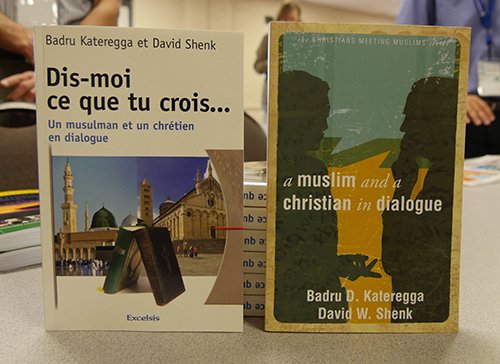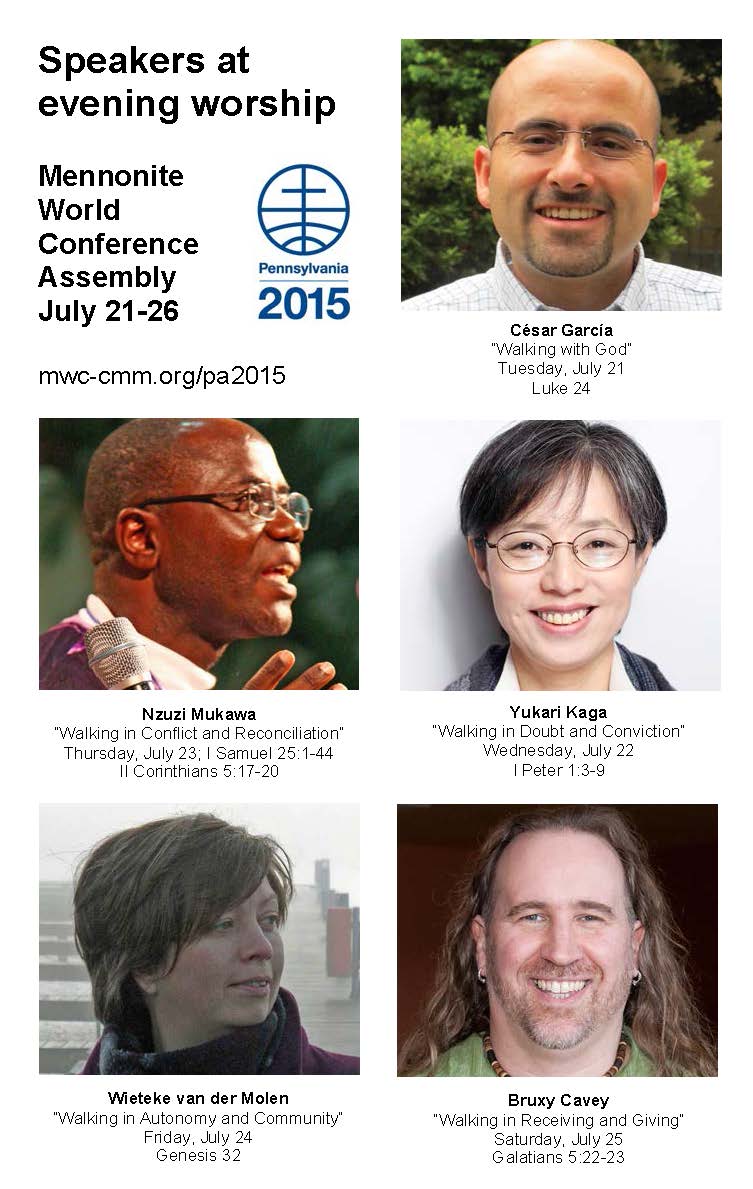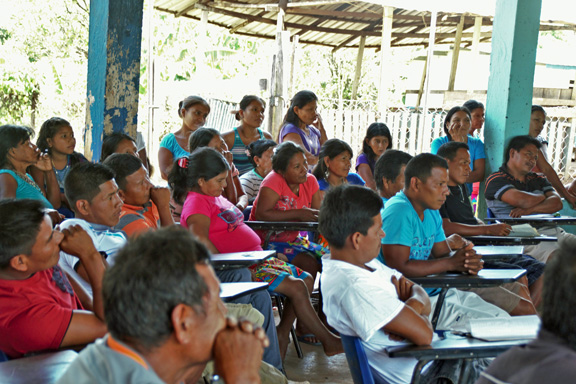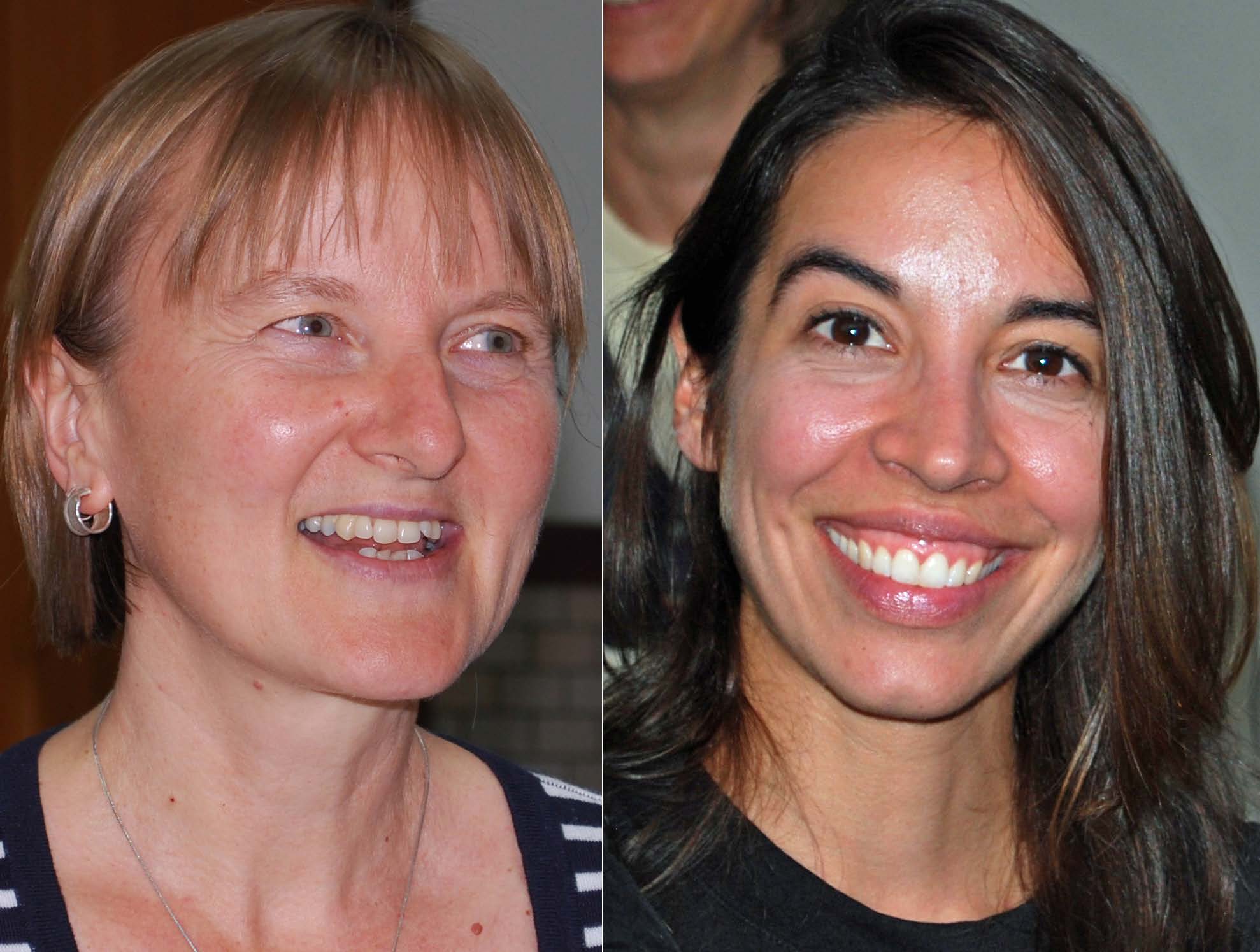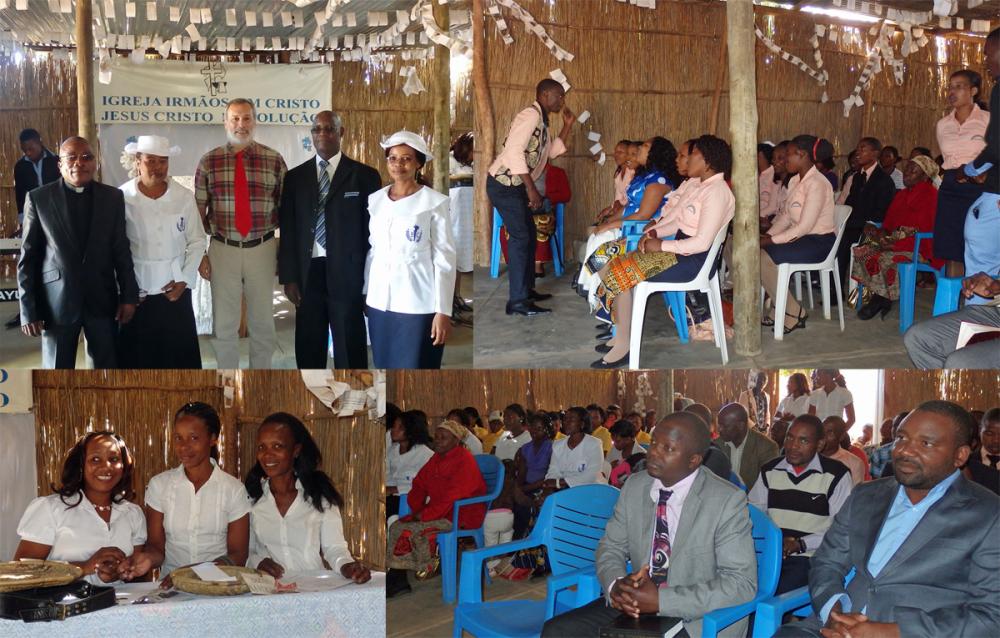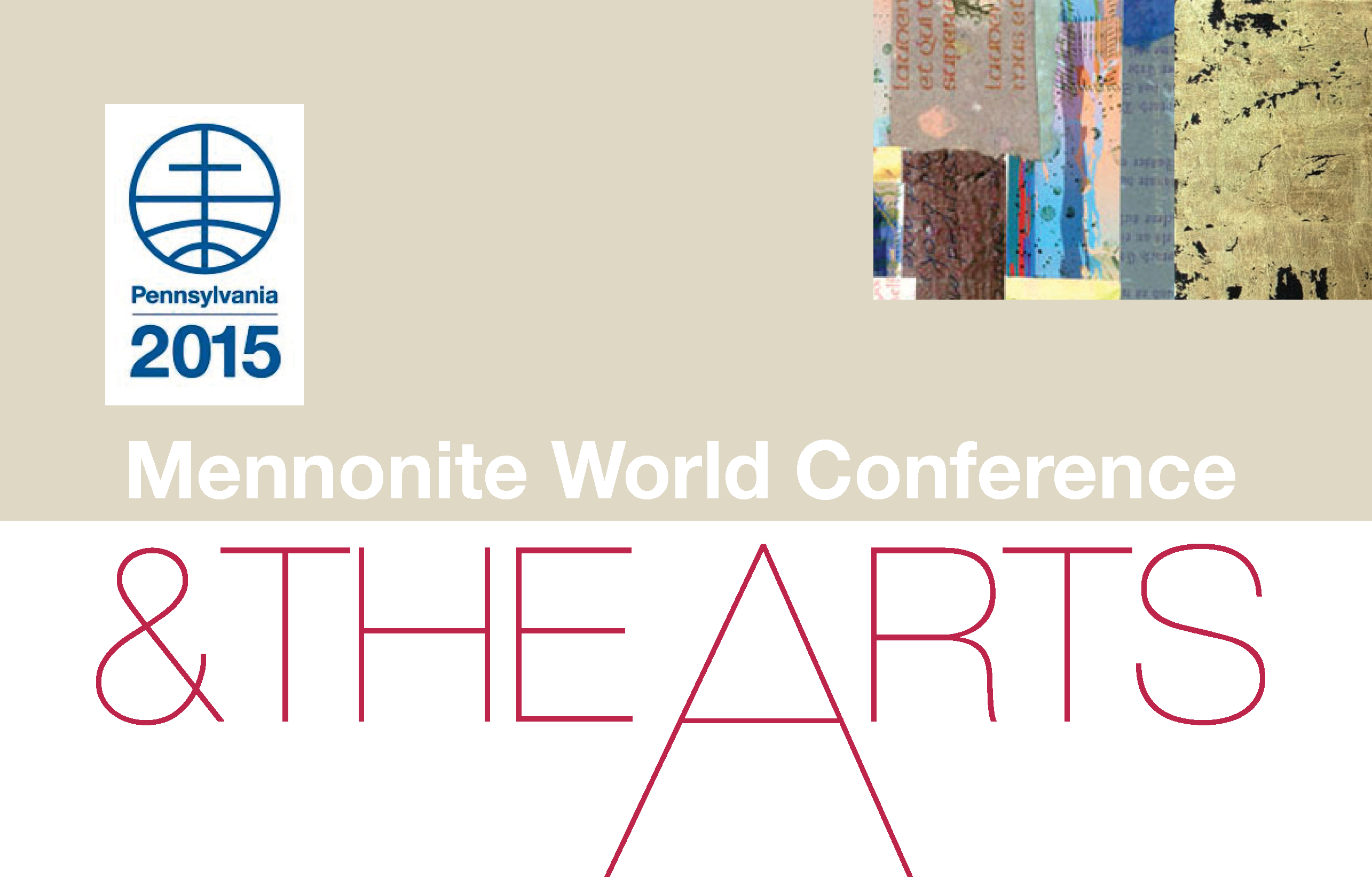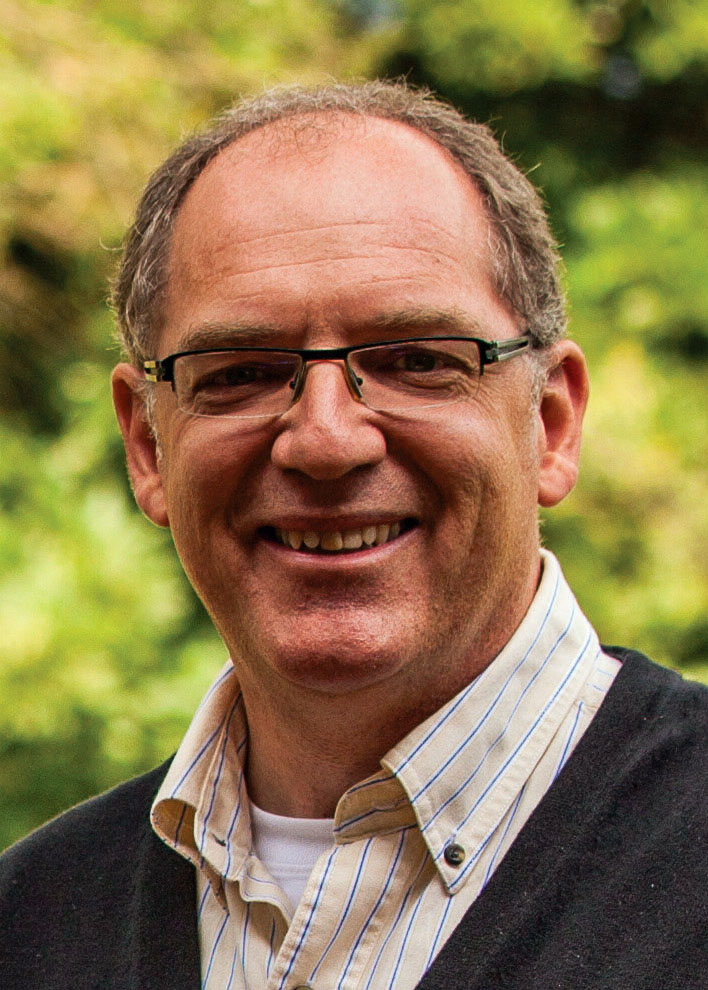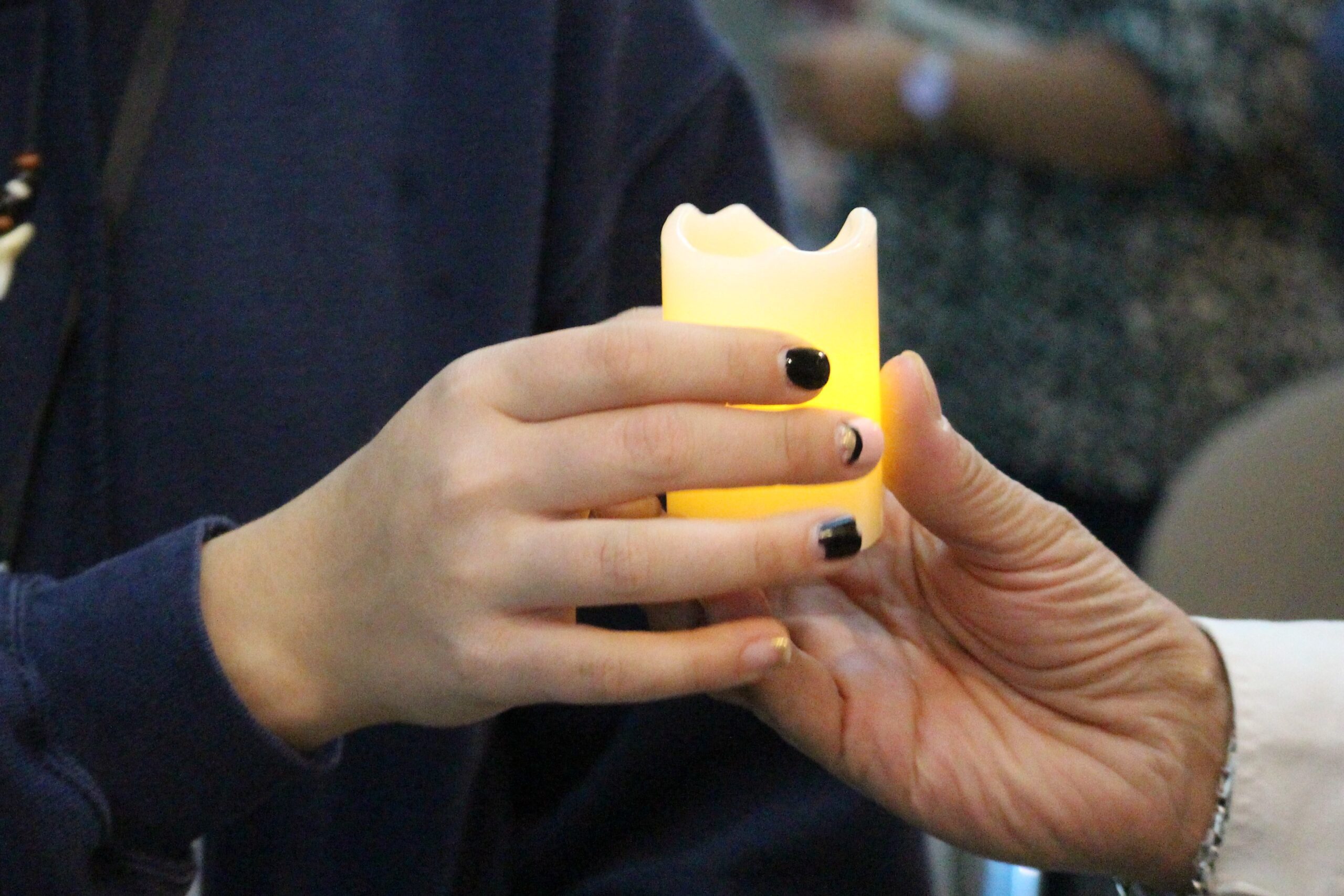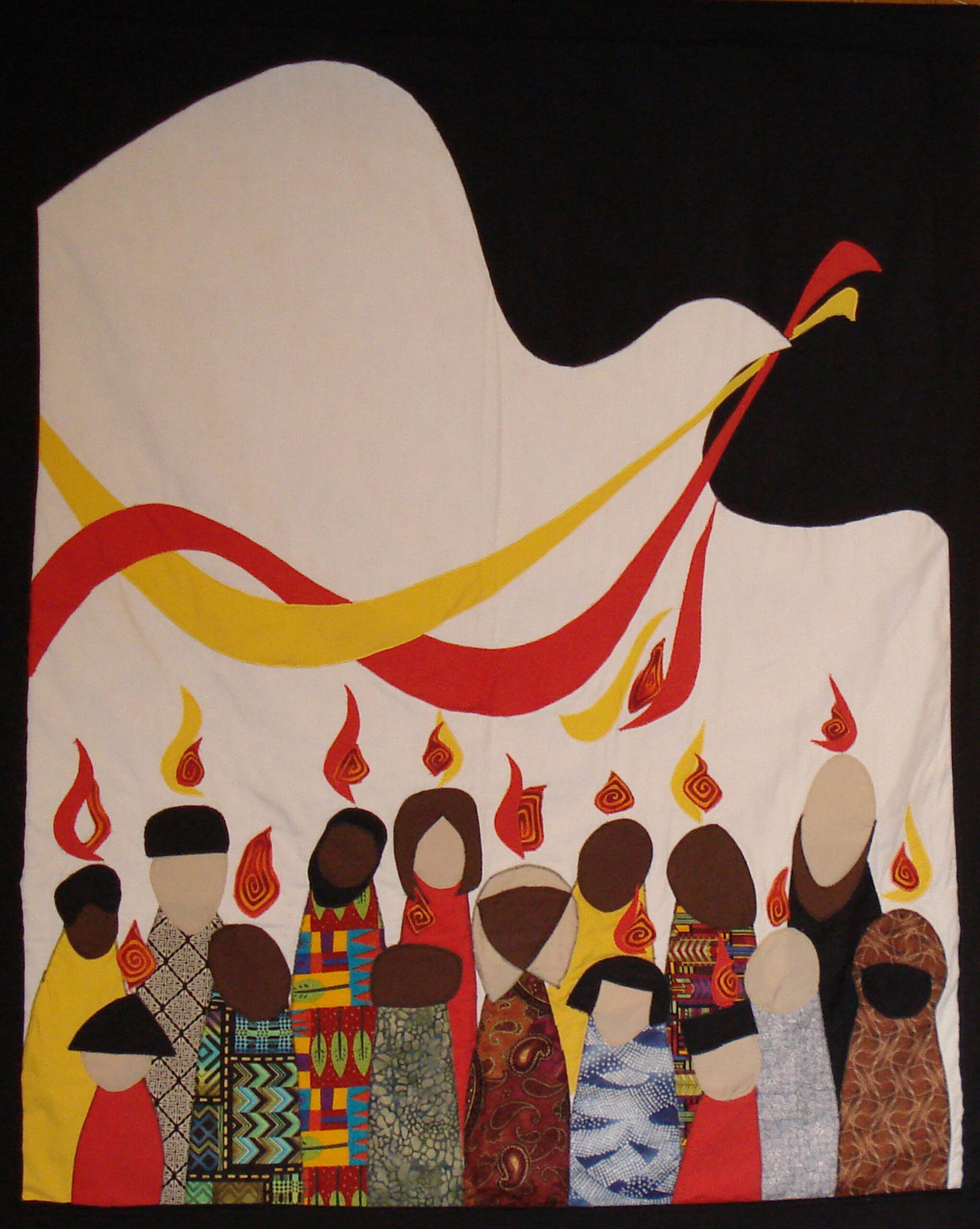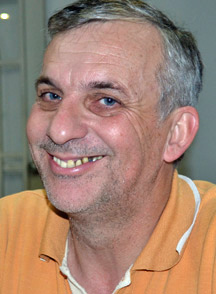-
Des francophones se rencontrent à Harrisburg
Le 23 juillet, plus de 50 francophones de 12 pays différents se sont retrouvés sous la présidence de Max Wiedmer dans une salle perdue au fond d’un dédale de couloirs du Farm Show Complex de Harrisburg, en Pennsylvanie. Si perdue qu’une trentaine de personnes ne l’ont jamais trouvée… Échos de cette réunion du Réseau mennonite
-
Evening speakers at PA 2015 to offer ëglobal feast for the soul’
Harrisburg, Pennsylvania – “We’re offering a global feast for the soul,” says Don McNiven, a member of the Program Committee for Mennonite World Conference’s Assembly, as he announced evening speakers for PA 2015, to be held in Harrisburg, Pennsylvania in July. “Each day we will consider a tension that all of us face as Christians.
-
International Music Ensemble announced for PA 2015
Harrisburg, Pennsylvania – A 19-member international ensemble of singers and instrumentalists has just been selected to lead the morning and evening worship each day at PA 2015, the Mennonite World Conference Assembly to be held in Harrisburg at the Farm Show complex July 21-26. “During the next few weeks, we’ll be learning each other’s stories,”
-
Panama Mennonites request prayer for land struggle
Panama – A request for prayer for land struggle was the main request that a Mennonite World Conference delegation heard in a February 2015 visit with church and indigenous community leaders in Panama. Leaders of the MWC member church, Iglesia Evangélica Unida Hermanos Menonitas de Panamá (United Evangelical Church: Mennonite Brethren in Panama), invited the
-
Nepal church requests prayer in aftermath of earthquake crisis
Bogotá, Colombia – Mennonite World Conference is calling for urgent prayer for the people of Nepal. On Saturday, 25 April 2015 they experienced an earthquake of 7.8 on the Richter scale followed by many powerful aftershocks. MWC has been in contact with its member church, Nepal BIC Church/Brethren in Community Welfare Society. On 27 April
-
Part-time registration opens for PA 2015
Akron, Pennsylvania – Part-time registration is now available for PA 2015, the Mennonite World Conference (MWC) Assembly slated for 21-26 July in Harrisburg, PA, at the Farm Show Complex. “We’ve determined that there will be enough space to accommodate those who can attend PA 2015 only for a day or two,” said Liesa Unger, Chief
-
Mozambique, the Land of the Smiles!
When I was at the European Mennonite gathering, held in Madrid, in November 2011, I met Liesa Unger who asked me if I could be in Switzerland in May of 2012 to translate into Portuguese at an MWC event. I knew that brothers from Angola and Brazil would be there, so I was very glad
-
PA 2015 to include art exhibits and workshops
Harrisburg, Pennsylvania – The arts will be featured in a variety of ways at PA 2015, the Mennonite World Conference Assembly to be held here 21-26 July. Go to www.mwc-cmm.org/mwc-arts for further information, including a link to a downloadable overview brochure. A juried exhibit of contemporary artwork by artists of all ages and traditions will
-
Jesus with Skin On
Global Communion and Why It Matters: Exploring our shared commitment to being a worldwide family As Mennonite World Conference, we share a commitment to being a worldwide communion (koinonia) of faith and life. Together, we seek to be a fellowship that transcends boundaries of nationality, race, class, gender and language. Yet because of our diversity,
-
Being peacemakers after Charlie Hebdo attacks in France
Ingersheim, France – Along with our country and its population, we are under the shock of the recent events of terrorist attacks against the journalists of Charlie Hebdo, police officers and Jewish citizens in Paris. People’s emotions are varied, ranging from anger expressed about these acts and toward their perpetrators, to the fear of insecurity
-
Call for artwork at MWC Assembly
Bogotá, Colombia – Are you an artist? Do you know an Anabaptist artist? Mennonite World Conference is calling for artwork to be displayed at Assembly Gathered, 21-26 July 2015 in Harrisburg, Pennsylvania USA. At the Assembly there will be a central gallery, which will feature representative contemporary artwork by artists of all ages and traditions.
-
Mennonite World Conference and Argentinian church mourn death of leader
Bogotá, Colombia – Early Easter morning, 5 April, Edgardo Sánchez, a leader in Iglesia Evangélica Menonita Argentina (Evangelical Mennonite Church of Argentina), died in a car accident while travelling to his home in Neuquén, Argentina. Later that day, Mennonite World Conference General Secretary, César García of Bogotá, Colombia shared the tragic news with the MWC
